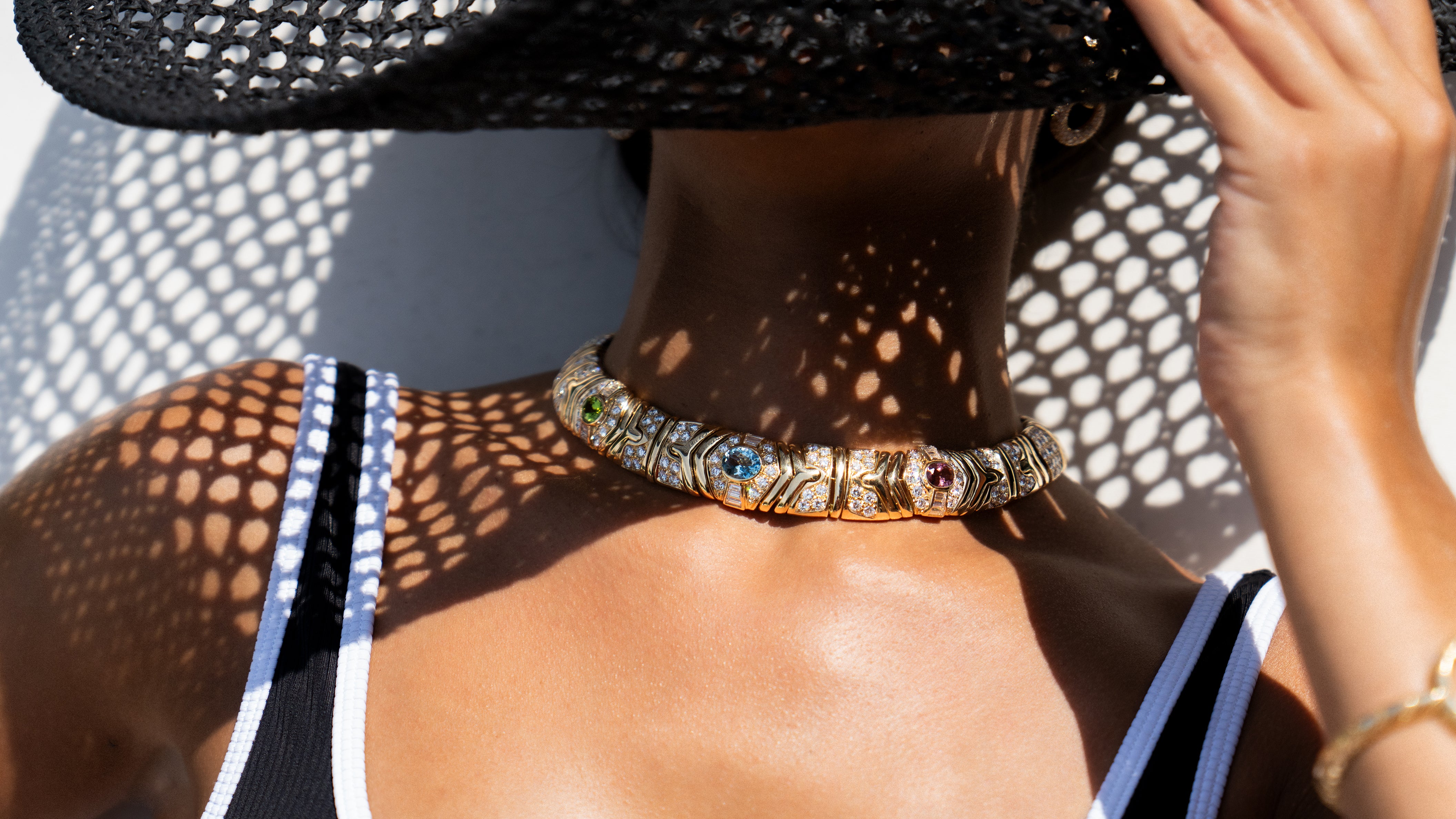Sunstone
Sparkling Inclusions

Sunstone is in the same feldspare mineral family as moonstone but can come from two different sub-groups; orthoclase or plagioclase. Sunstone is unique in that it is not categorized by its chemical makeup like other gemstones are, but by its appearance.
Sunstone's color can range from a light orange, to yellowish-brown, to a deep reddish-orange color and it will feature the phenomenon aventurescence, also known as "schiller".
Unlike moonstone, sunstone's shimmering phenomenon is caused by tiny reflective platelet inclusions of hematite or copper. Aventurescence coloration largely depends on the size and organization of these inclusions that capture and reflect light.
Origin
Though sunstone is not widely known, it does have a rich history. Sunstone was a rare find pre-1900s until technology allowed for better excavation. In Victorian jewelry it was a prized rare find treated with the same esteem as a sapphire or ruby.
In early 20th century Oregon a steady deposit of sunstone was discovered. Unlike previous specimens, this rough was transparent was dramatic copper platelets shimmering throughout. Native Americans in the area believed the stone to be powerful and full of the splattered blood of a fallen warrior and that the gem carried his spirit.
This stone is now found globally and is thought to be more of a collector's stone.

Jewelry and Care
Sunstone is a moderately hard and durable gem. It will often be fashioned as a cabochon to display phenomenon, but can also be faceted or carved. It is not often seen in jewelry.
This gem can be cleaned with warm soapy water and a soft bristled brush. It should be wrapped in a soft cloth when stored to prevent it from being scratched by harder gemstones. As always, avoid harsh chemicals when wearing any kind of jewelry.
